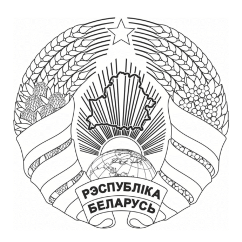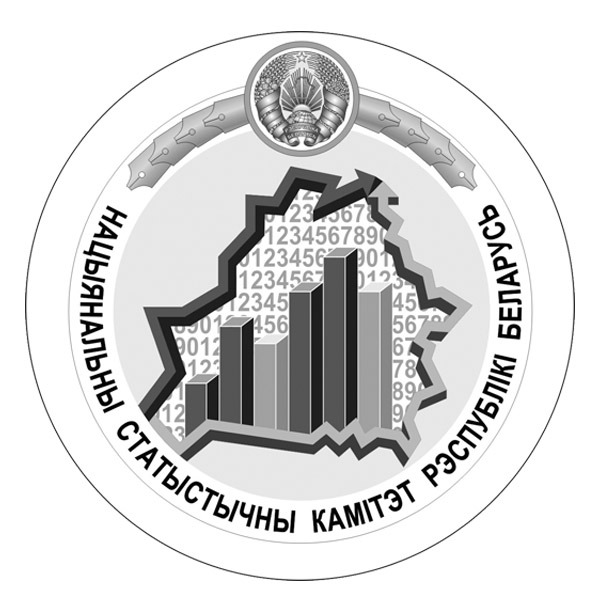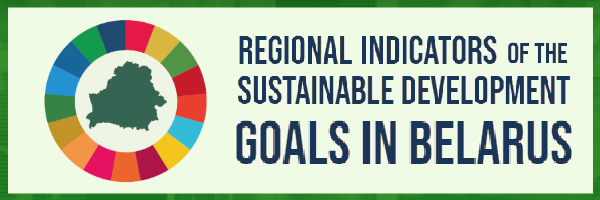Experience of Belstat presented at the Meeting of CIS NSO Specialists for SDGs (17-18 April 2024, Moscow, Russian Federation)
18 april 2024
Events 2024
A meeting of specialists from statistical offices of the CIS countries on statistics for the Sustainable Development Goals is taking place in Moscow, Russian Federation, on 17 and 18 April 2024. The event is organised by the Interstate Statistical Committee of the Commonwealth of Independent States (CISSTAT), the United Nations Population Fund for Eastern Europe and Central Asia (UNFPA EECA) together with the Federal State Statistics Service (Rosstat) and the Eurasian Economic Commission (EEC).
The meeting provides a platform for sharing countries’ experiences, international best practices, showcasing innovative solutions for achieving the Sustainable Development Goals (SDGs), as well as identifying priorities for future work and statistical capacity building in this area.
The experience of Belstat in monitoring the SDG indicators was presented by Elena Kukharevich, First Deputy Chairperson of the National Statistical Committee of the Republic of Belarus, Inna Konoshonok, Head of the Living Standards Statistics and Household Sample Surveys Department, Irina Bichan, Head of the Demographic Statistics and Population Census Department, and Elena Kondratenko, Head of the International Cooperation and Statistical Information Dissemination Department.
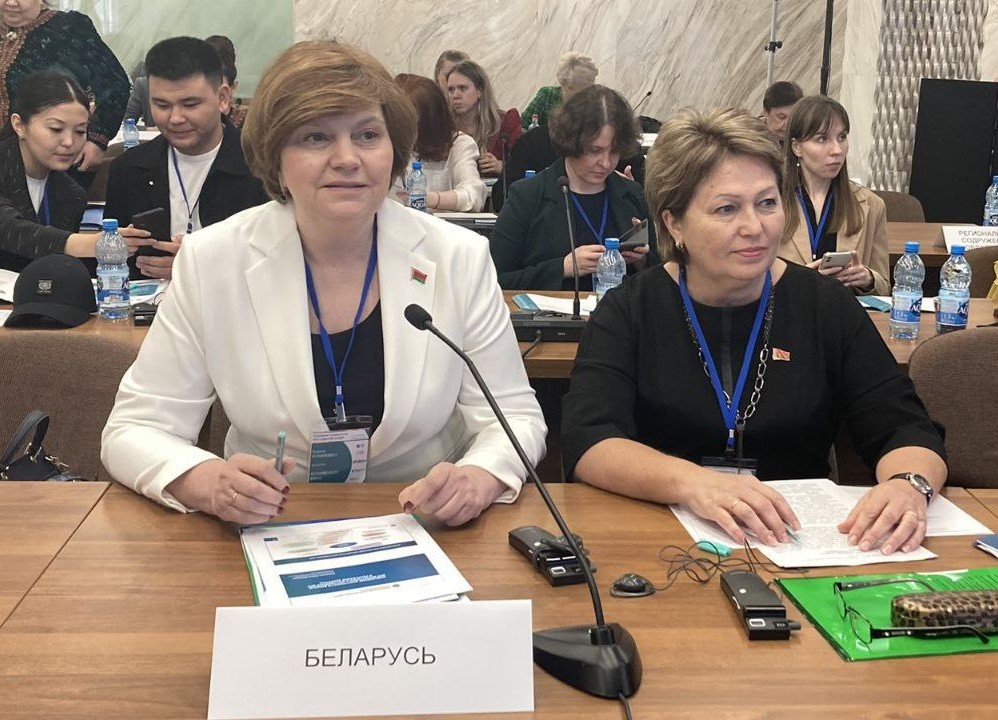
During the Session " SDG monitoring – impetus to the development of national statistical systems" Elena Kukharevich, First Deputy Chairperson of Belstat, and Inna Konoshonok, Head of the Living Standards Statistics and Household Sample Surveys Department delivered a presentation on "Increasing data availability for monitoring the achievement of SDGs in the Republic of Belarus".
Addressing the audience, First Deputy Chairperson of Belstat said that, thanks to the established mechanism, an effective system of management of the process of achieving the SDGs is in place in the country. All Sustainable Development Goal indicators are integrated into sectoral and regional strategies and state programmes of socio-economic development of the Republic of Belarus. The key objectives set are focused on achieving high standards of living of the population, qualitative growth of the economy, formation of a full-fledged competitive environment, creation of comfortable conditions for vital activities, preservation of natural systems for present and future generations.
An important stage in the implementation of the 2030 Agenda is to determine the level of the country on the way towards the SDGs. "Currently, data availability is over 90 per cent. This allowed us to make an assessment of progress towards the SDGs of the Republic of Belarus which showed that about 80 per cent of indicators demonstrated significant progress and achievement of high results," emphasized Elena Kukharevich.
The main directions of Belstat's work are closing data gaps and adaptation of international methodology to national conditions, search for new sources and methods of data acquisition. "In Belarus, by integrating space technologies, geographic information systems (GIS) and statistical information, a methodology for 9 SDG indicators has been developed. The work on expanding the list of indicators that can be produced and disseminated with the use of GIS technologies continues," noted the First Deputy Chairperson of Belstat.
In addition, Elena Kukharevich drew attention to the interaction of CISSTAT and the EEC with national statistical offices on the issues of comparability of data on SDG indicators in materials and publications as well as to the use of national reporting platforms as the primary data source.
The results of household sample surveys represent a great information potential for monitoring progress towards the SDGs.
"Virtually any social and demographic issue can be investigated through household sample surveys. Understanding that household (population) sample surveys are an important source of information for monitoring progress in achieving national and global SDG indicators, we are expanding the survey programme with new questions and even modules," noted Inna Konoshonok.
During the Session "Traditional and alternative data sources for SDG monitoring" Irina Bichan, Head of the Demographic Statistics and Population Census Department, spoke: "Just as for statistics in general, the census represents an important layer of data for SDGs. It ensures tracking of SDG indicators and is the sampling frame for all national and regional surveys. The practical significance of the census is that its results are compiled in a combination of any predetermined attributes, so that disaggregation of SDG indicators by different dimensions becomes available.”
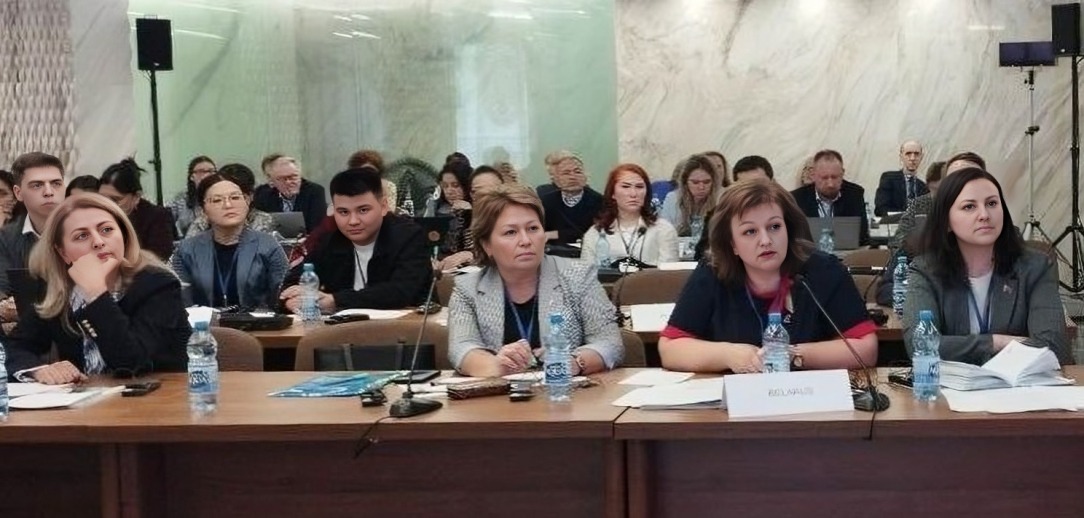
"In Belarus, on the basis of the population census data, four indicators for Goals 4, 8, 11, 17 have been calculated," summarized Irina Bichan.
During the Session "Dissemination and visualization of information on SDGs" Elena Kondratenko, Head of the International Cooperation and Statistical Information Dissemination Department delivered the presentation "National experience of localization of SDGs in the Republic of Belarus: Regional Data Platform for Sustainable Development".
“One of the most important directions of the global initiative to implement the SDGs is their regional localization, which will allow for the assessment and responding to changes in the internal and external environments, identifying new needs specific to a particular area, risks/threats to sustainable development, as well as identifying and targeting the needs of the most vulnerable groups of the population.
Following the principle "think globally, act locally", Belstat has completed the work on the creation of the Regional Data Platform for Sustainable Development, which provides an opportunity to compare the development indicators of the regions of the country, make inter-regional comparisons on SDG indicators and rank regions in terms of sustainable development. The Regional Platform is the main tool for monitoring and disseminating information on the progress of the regions of the Republic of Belarus towards the SDGs," Elena Kondratenko noted in her report.
The Regional Data Platform for Sustainable Development is the best practice of localization of the Sustainable Development Goals in the Republic of Belarus. The participants of the seminar were presented with the capabilities of the Regional Platform, the mechanism of interaction of state statistics bodies and government agencies on data flows, options for data visualization, an overview of the proposed modern formats, including machine-readable, for obtaining information.
"The plans for this year include a pilot regional assessment of progress towards the SDGs. The results of the progress assessment will be posted on the Platform," summarized Elena Kondratenko.
